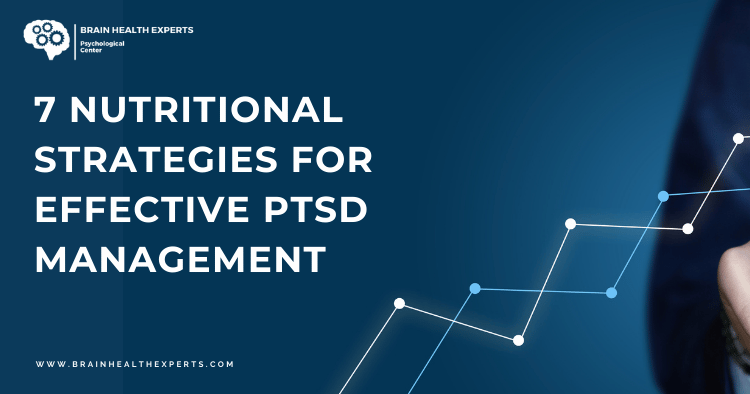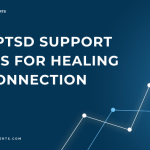Table of Contents
- Understanding PTSD and Its Impact
- The Link Between Nutrition and Mental Health
- 1. Embrace Omega-3 Fatty Acids
- 2. Prioritize Whole Foods
- 3. Incorporate Antioxidant-Rich Foods
- 4. Stay Hydrated
- 5. Consider Probiotics
- 6. Limit Processed Foods
- 7. Maintain Balanced Blood Sugar
- Conclusion
- FAQs
Understanding PTSD and Its Impact
Post-Traumatic Stress Disorder (PTSD) is a mental health condition triggered by experiencing or witnessing traumatic events. Symptoms include flashbacks, severe anxiety, nightmares, and uncontrollable thoughts about the event. According to the Department of Veterans Affairs, around 7-8% of the U.S. population will experience PTSD at some point in their lives.
Did You Know?
Managing PTSD often requires a comprehensive approach that includes therapy, medication, and lifestyle adjustments. Nutrition is increasingly recognized as a crucial factor that can significantly influence mental and emotional well-being.
The Link Between Nutrition and Mental Health
Research shows a strong connection between diet and mental health. Poor nutrition can exacerbate symptoms of PTSD, while a balanced diet can aid recovery. Nutrients play essential roles in neurotransmitter function, inflammation reduction, and overall brain health.
Insightful Study
A study published in the Journal of Traumatic Stress highlights that nutritional interventions can help mitigate PTSD symptoms. By focusing on a well-rounded diet, individuals can create a supportive environment for healing.
1. Embrace Omega-3 Fatty Acids
Omega-3 fatty acids, found in fatty fish like salmon, walnuts, and flaxseeds, are known for their anti-inflammatory properties and benefits for brain health. They can help reduce symptoms of depression and anxiety, which are common among those with PTSD.
Why Omega-3s Matter:
- Neurotransmitter Regulation: Omega-3s support serotonin production, a neurotransmitter crucial for mood regulation.
- Cognitive Function: These fatty acids are linked to improved memory and cognitive function, beneficial for those experiencing PTSD.
Incorporating omega-3s can be as simple as enjoying grilled salmon or adding flaxseeds to your morning smoothie.
2. Prioritize Whole Foods
Whole foods such as fruits, vegetables, whole grains, and lean proteins provide essential nutrients that support brain health and emotional stability. Unlike processed foods, whole foods are packed with vitamins and minerals that can improve mood and reduce anxiety.
Benefits of Whole Foods:
- Nutrient Density: Rich in antioxidants, vitamins, and minerals that combat oxidative stress.
- Stable Energy Levels: Whole foods help maintain stable blood sugar, preventing mood swings.
Aim to fill your plate with a variety of colors by including different fruits and vegetables.
3. Incorporate Antioxidant-Rich Foods
Antioxidants combat oxidative stress in the body, which can be heightened in individuals with PTSD. Foods rich in antioxidants include berries, leafy greens, nuts, and dark chocolate.
Why Antioxidants Are Important:
- Reducing Inflammation: Antioxidants help lower inflammation linked to various mental health conditions.
- Enhancing Brain Health: They protect brain cells from damage and may improve cognitive function.
Add blueberries to your yogurt or enjoy dark chocolate as a snack to reap the benefits of antioxidants.
4. Stay Hydrated
Proper hydration is crucial for overall health, including mental health. Dehydration can lead to fatigue, irritability, and difficulty concentrating, all of which can worsen PTSD symptoms.
Hydration Tips:
- Drink Water: Aim for at least 8-10 glasses daily.
- Herbal Teas: These can be soothing and hydrating, offering additional benefits depending on the herbal blend.
Carrying a reusable water bottle can help ensure you drink enough water throughout the day.
5. Consider Probiotics
Emerging research suggests that gut health significantly impacts mental health. Probiotics, found in fermented foods like yogurt, kefir, and sauerkraut, promote a healthy gut microbiome.
Probiotics and Mental Health:
- Gut-Brain Connection: A healthy gut can influence mood-regulating neurotransmitters.
- Reducing Anxiety: Probiotics may help reduce symptoms of anxiety and depression.
Incorporate fermented foods into your diet to support gut health, such as adding yogurt to breakfast or snacking on sauerkraut.
6. Limit Processed Foods
Processed foods often contain high levels of sugar, unhealthy fats, and artificial additives, negatively impacting both physical and mental health. Reducing these foods can help stabilize mood and improve overall well-being.
Why Limit Processed Foods:
- Mood Swings: High sugar and unhealthy fats can lead to energy crashes and irritability.
- Inflammation: Processed foods can contribute to inflammation, linked to various mental health conditions.
Opt for whole food alternatives like nuts, fruits, or homemade snacks instead of packaged snacks.
7. Maintain Balanced Blood Sugar
Keeping blood sugar levels stable is crucial for maintaining energy and mood. Fluctuations can lead to irritability and anxiety, exacerbating PTSD symptoms.
Tips for Balanced Blood Sugar:
- Frequent, Small Meals: Eating smaller meals throughout the day helps maintain energy levels.
- Balanced Macros: Include a mix of protein, healthy fats, and complex carbohydrates in each meal.
Snacks like apple slices with almond butter or mixed nuts can help keep blood sugar steady.
Conclusion
Nutrition plays a vital role in managing PTSD symptoms and supporting overall mental health. By incorporating these seven nutritional strategies into your daily routine, you can create a strong foundation for healing and well-being. Always consult with a healthcare provider or nutritionist for personalized dietary choices.
FAQs
Q1: Can nutrition alone cure PTSD?
A1: While nutrition can significantly aid in managing symptoms and supporting overall mental health, it is not a standalone cure. A comprehensive treatment plan that includes therapy and possibly medication is often necessary.
Q2: How long does it take to see improvements from dietary changes?
A2: Improvements can vary from person to person. Some may notice changes within a few weeks, while others may take longer. Consistency is key!
Q3: Are there specific diets recommended for PTSD?
A3: There is no one-size-fits-all diet, but focusing on whole foods, omega-3 fatty acids, antioxidants, and gut health can be beneficial. Always consult a healthcare professional for personalized advice.
Also look for related insights on how positive thinking can transform your mental health by checking out 10 Powerful Affirmations to Boost Mental Health Today, or explore 10 Proven Stress Management Techniques for Daily Relief for additional strategies that can complement your nutritional efforts. Remember, the journey to healing is unique for everyone, and small changes can lead to significant improvements over time!





